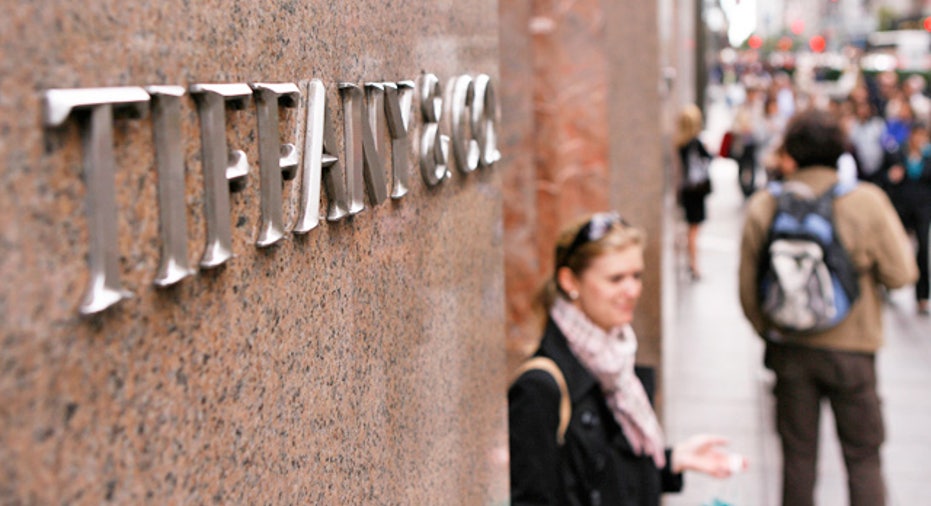Tiffany Reports Disappointing 2Q Results, Narrows Sales View

Tiffany (NYSE:TIF) reported modest improvements in sales and earnings on Monday but lowered its outlook on sales growth citing continued economic weakness in the U.S. and Europe.
The New York-based luxury jewelry designer earned $92 million, or 72 cents a share, compared with a year-earlier $90 million, or 69 cents. The results missed average analyst estimates in a Thomson Reuters poll by a penny.
The 2011 period had included a $21 million charge, or an impact of about 16 cents a share, related to the relocation of Tiffany’s New York headquarters. Excluding those costs, Tiffany said net earnings in the 2012 second quarter declined 17% year-over-year.
Revenue climbed 2% to $887 million, up from $873 million a year ago, below the Street’s view of $890.9 million, while comparable-store sales fell by 1%.
Sales increased 11% to $159 million in Japan but fell 1% in both the Americas region and in Europe. In the U.S., by far its largest market, comparable-store sales declined by 5%.
Tiffany maintained a cautious near-term outlook about global economic conditions and consumer spending. For fiscal 2012, the company sees earnings in the range of $3.55 to $3.70 a share, bracketing the consensus of $3.64.
“Management continues to expect an earnings decline in the third quarter followed by a resumption of growth in the fourth quarter,” Tiffany said in a statement.
The company lowered its view on worldwide sales growth for the full year ending in January 2013 to a range of 6% to 7% from its earlier view of 7% to 8% growth.
However, shares of Tiffany soared about 6.3% early in Monday’s session to $62.10.
“Not surprisingly, sales growth has been affected by economic weakness in a number of markets and by a very challenging prior-year comparison to a 30% increase in worldwide net sales,” Tiffany CEO Michael Kowalski said in a statement.
The jeweler said it had also been anticipating the reduced operating margin due to what it called continuing but moderated high product input costs and lack of sales leverage on fixed costs. Gross margin was 56.3% in the second quarter compared with 59% last year.



















